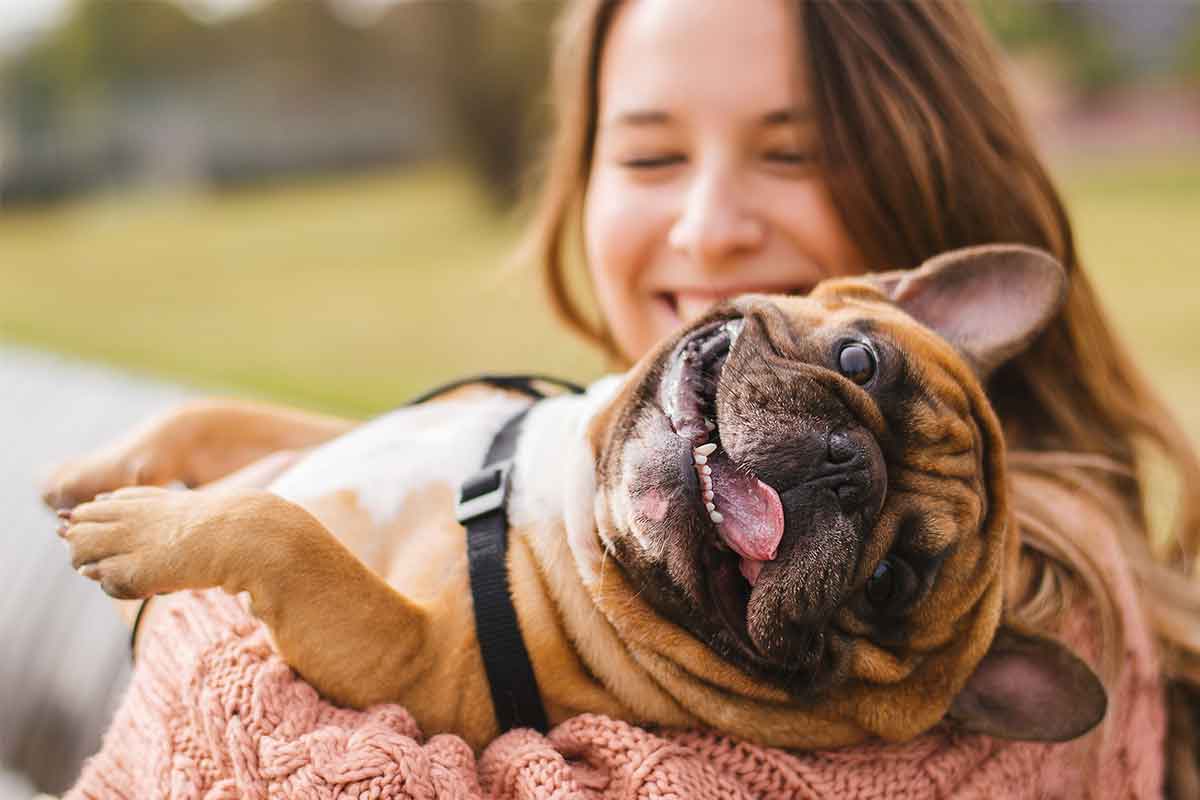Television shows and movies portray every dog and owner relationship as a wonderful, empathic, instantaneous one. A dog in the shelter takes one look at a person searching for a dog, they lock eyes, look deeply into each other’s soul, and immediately have a lifelong bond.
Wouldn’t that be wonderful? Just like relationships with people, though, relationships with dogs take work to build and maintain. This is true for newly adopted dogs, new puppies, and even for the dog who has been in your home for a while.
Spend The Time
Dogs need our time and attention. Whether dogs are young, adult, or elderly, new to the home or a longtime family member, they need to spend time with us to create and maintain an emotional bond.
Let your dog hang out in your office while you’re working from home or let him follow you from room to room as you do things around the house. Throw a ball for him as you do yard work.
Go for walks with him and put your phone away as you walk together. Watch what your dog is interested in and talk to him about it. He won’t understand most of the words but he understands your interest.
Don’t forget to spend some quiet time touching each other. Touch is just as important for dogs as it is for us. Encourage your dog to cuddle up next to you as you read or relax. As you do, rub his ears, massage his neck, or stroke his back. It’s good for both of you.
Teach Him
The phrase dog training is a misnomer; it is really dog and owner training. When training your dog, you learn how to best communicate with him, and he learns how to understand you. Because a good relationship requires communication, training is a vital part of that process.
Training teaches your dog how to live with you. You can set rules and boundaries so that life together is less stressful. Rather than reprimand him for making the ‘wrong’ choice, redirect the actions you prefer he not do (jump on the bed, for example) and reward those actions you like (lie down on your own bed next to the bed).
Play With Him
Play is so important to both people and dogs it’s hard to emphasize it enough. Play is exercise and keeps the body moving. Play relieves stress–and yes, dogs feel stress, too. Play makes us laugh and helps build communication skills.
As you play with your puppy or dog, pay attention to what games he likes. It won’t be any fun if he doesn’t like a particular game even if you do. Some dogs love to retrieve while others don’t. Many dogs like hide and seek games, but other dogs may never figure out the excitement of them. Discover what games you both enjoy.
Pay Attention To Your Reactions
Dogs often tune in to your emotions and body language even when they don’t understand what’s going on. It’s important, especially when first building a relationship with your dog, to temper your reactions and emotions so they don’t cause fear, anxiety or stress. Extremes can overwhelm your dog.
It’s easy to become frustrated or even angry when you have a new dog in the house, especially if that dog doesn’t understand your words, instructions, or household rules. But frustration and anger won’t teach your dog what you want him to do, and those reactions could well cause him to distrust you.
On the other end of the spectrum, people with a new puppy tend to be besotted, spending so much time playing with and petting their new family member that they fail to teach him anything at all. Then they are unhappily surprised and frustrated when their adolescent puppy becomes difficult to manage.
Balance is the key to success. The goal is to build a one-of-a-kind relationship with your dog that pleases you as much as it pleases him.
This article was reviewed/edited by board-certified veterinary behaviorist Dr. Kenneth Martin and/or veterinary technician specialist in behavior Debbie Martin, LVT.








